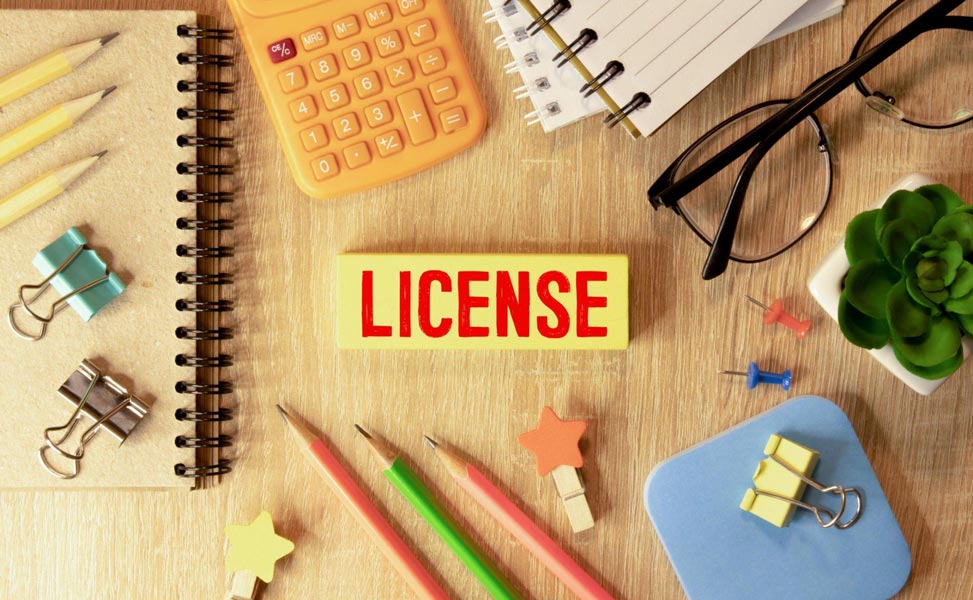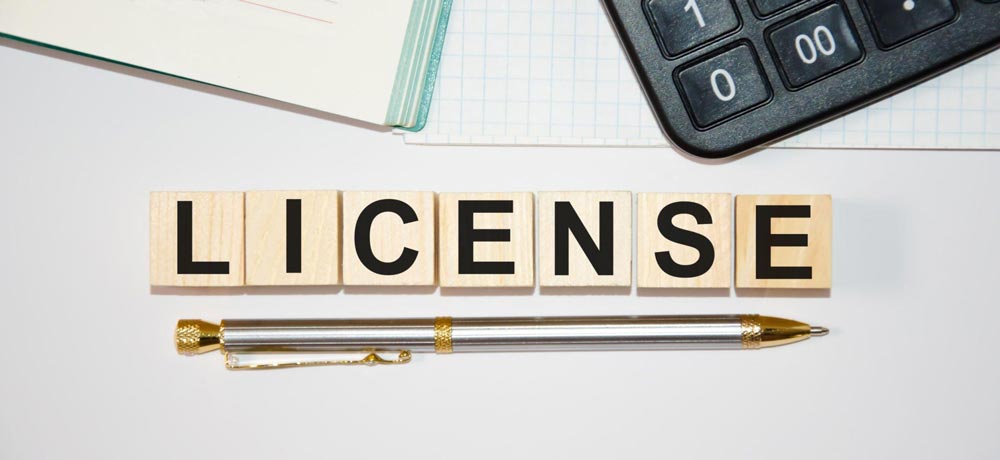Finance
What Licenses Are Needed to Start a Cleaning Business [Updated 2023]

What licenses are needed to start a cleaning business? The specific licenses and permits that you need will vary depending on your state and city. However, some essential factors need to consider during obtaining cleaning business license.
Starting your own cleaning business can be an exciting venture. It’s a chance to be your own boss and provide valuable services to others. But before you begin, there are some important things to know about licenses and permits. These might sound a bit confusing, but don’t worry!
In this article, we’re going to make it super easy to understand what licenses you’ll need to get your cleaning business up and running. No fancy jargon or confusing technical stuff—just simple, clear info to help you on your way.
Understanding The Importance of Licenses and Permits
Let’s start with the basics. Why do you need licenses and permits to run your cleaning business? Well, think of them as your official permission slips from the government. They’re like a stamp of approval that says, “Hey, we’re running a legit operation here!” These licenses and permits aren’t just pieces of paper; they serve several important purposes:
1. Legal Compliance: First and foremost, licenses and permits ensure that you’re following all the rules and regulations set by your local, state, and federal governments. It’s about playing by the book and being a responsible business owner.
2. Protecting Your Business: They also offer a layer of protection for your business and your clients. They create a sense of trust, showing your clients that you’re a professional who takes their work seriously. Plus, some licenses may provide liability coverage, which can be a lifesaver if something unexpected happens on the job.
3. Avoiding Penalties: Operating without the necessary licenses can lead to fines, penalties, or even legal trouble down the road. We all want to avoid those headaches, right?
4. Quality Assurance: Lastly, licenses and permits often come with certain standards and requirements. These standards can help improve the quality of your services, which is a win-win for both you and your clients.
So, you see, getting the right licenses and permits isn’t just about paperwork. It’s about running a professional and responsible cleaning business that benefits both you and your customers.
You May Like it:
How to Get Clients for a Cleaning Business? [8 Effective Strategies 2023]
How to Start a House Cleaning Business? [9 Simple Steps Updated 2023]
What Licenses Are Needed to Start a Cleaning Business: Types of Licenses

Alright, now that we’ve covered why licenses and permits are important, let’s dig into the different types you might need for your cleaning business. It’s not a one-size-fits-all situation, as the requirements can vary depending on where you’re located and the specific services you offer. Here’s a breakdown of the main types:
1. Business License: Think of this as your “business registration.” It’s the basic license that allows you to operate legally within your city or town. It’s like the key to the front door of your business.
2. Occupational Licenses: These licenses are more specific and often tailored to the type of cleaning you do. For example, if you focus on residential cleaning, there might be a specific license for that. Commercial cleaning? There could be one for that too. These licenses ensure you’re qualified for the type of cleaning you provide.
3. Environmental Permits: If your cleaning business involves handling chemicals or dealing with waste disposal, you may need environmental permits. These ensure that your operations are eco-friendly and safe for the environment.
4. Insurance Requirements: While not exactly a license, having the right insurance coverage is crucial. Liability insurance, in particular, is your safety net. It protects you and your clients in case of accidents or damages on the job.
Understanding which of these licenses apply to your business is the first step in the licensing process. It’s like knowing which ingredients you need before you start cooking. Each license has its purpose, and together, they make sure you’re cooking up success in your cleaning business.
You can also watch this video for more clarification on this matter.
Obtaining An LLC License for A Cleaning Business

Now, let’s talk about one specific type of license that many small business owners consider: the Limited Liability Company (LLC) license. An LLC isn’t mandatory, but it’s an attractive option for some cleaning business owners. Here’s why:
1. Personal Asset Protection: When you operate as an LLC, your personal assets (like your house or car) are typically protected from business-related debts and lawsuits. It’s like having a safety shield around your personal stuff.
2. Tax Flexibility: LLCs offer flexibility in how you’re taxed. You can choose to be taxed as a sole proprietorship, partnership, or even as a corporation. This flexibility can mean potential tax advantages.
3. Credibility: Having “LLC” in your business name can add a touch of professionalism and credibility, which can help attract clients who want to work with reputable businesses.
To form an LLC, you’ll usually need to file some paperwork with your state, pay a fee, and create an operating agreement that outlines how your business will be run. It’s a bit of extra work, but for many, the benefits outweigh the effort.
Commercial Cleaning License Requirements
If you’re planning to focus on commercial cleaning, you may have some additional license requirements to consider. Commercial cleaning often involves larger properties, industrial-grade equipment, and sometimes more complex regulations. Here’s what you might need:
1. Specialty Licenses: Depending on the nature of your commercial cleaning services, you might need special licenses or certifications. For example, if you’re handling hazardous materials or providing post-construction cleaning, additional permits may be necessary.
2. Safety and Compliance: Commercial cleaning may involve stricter safety and compliance standards. Ensure your staff is trained and certified in handling specific cleaning tasks safely.
3. Environmental Considerations: Larger commercial properties might have stricter environmental regulations. Be prepared to meet those requirements if they apply to your services.
Before diving into commercial cleaning, research the specific requirements in your area and industry. It’s all about being well-prepared and knowing the rules of the game.
Applying For a Cleaning License
The process of applying for a cleaning license can vary from place to place, but here’s a general idea of what you can expect:
1. Research: Start by researching the specific requirements in your city or county. This information is usually available on your local government’s website or by contacting the relevant department.
2. Gather Documents: You’ll likely need to gather documents like your business plan, identification, and financial records. It’s a bit like putting together a puzzle.
3. Application Process: Follow the application process carefully. Fill out the necessary forms, provide the required documentation, and pay any fees. It’s like applying for a job – you want to present your best self.
4. Wait and Follow Up: Once you’ve submitted your application, it’s a waiting game. Be patient, but don’t hesitate to follow up if you haven’t heard back. Persistence pays off.
5. Renewals: Keep track of renewal dates. Some licenses need to be renewed annually, so mark your calendar to avoid any lapses.
Remember, the key to a smooth licensing process is staying organized and following the steps diligently. It’s like cleaning a room – tackle one task at a time, and soon enough, everything will be in order.
Costs Associated with Obtaining a Cleaning Business License
You might be wondering, “How much is all this going to cost?” Well, it depends. The costs associated with obtaining licenses and permits for your cleaning business can vary widely based on factors like your location and the type of licenses you need. Here are some potential expenses to consider:
1. License Fees: Most licenses come with application fees. These fees can range from a few dollars to several hundred, depending on your location and the type of license.
2. Insurance Costs: If you need liability insurance (which is highly recommended), the cost of insurance premiums can vary based on your coverage needs and the insurer you choose.
3. Legal and Consulting Fees: If you opt for legal advice or consulting to navigate the licensing process, there will be associated costs for these services.
4. Renewal Fees: Some licenses need to be renewed annually or periodically. Be prepared for these ongoing expenses.
While these costs can add up, think of them as investments in the legitimacy and longevity of your business. It’s like buying quality cleaning supplies – they’re essential for doing the job right and ensuring your clients’ satisfaction.
Bonding And Insurance Requirements for A Cleaning Business
We’ve mentioned insurance a few times already, but let’s dive a bit deeper into this topic because it’s crucial for your cleaning business.
1. Liability Insurance: Liability insurance is like a safety net. It protects you and your clients if accidents happen on the job. It covers things like property damage, injuries, or accidents caused by your cleaning services. Without it, you could be personally responsible for costly claims.
2. Bonding: Bonding is another layer of protection. It’s like a guarantee to your clients that if something goes wrong, they’ll be compensated. It’s an extra level of trust that can set you apart from the competition.
When it comes to insurance and bonding, it’s best to work with an insurance agent who understands the cleaning industry. They can help you find the right coverage at the best rates, ensuring you’re fully protected while keeping costs manageable.
Frequently Asked Questions
Q1: Do I need a license to start a cleaning business?
A1: Yes, in most cases, you will need various licenses and permits to legally operate a cleaning business. These licenses ensure that you comply with local, state, and federal regulations and provide protection for both you and your clients.
Q2: What is the first step to obtain licenses for my cleaning business?
A2: The first step is to research the specific licensing requirements in your area. Contact your local government or visit their website to find out which licenses and permits are necessary for your type of cleaning business.
Q3: Are the licensing requirements the same everywhere?
A3: No, licensing requirements can vary significantly depending on your location and the services you offer. Different cities, counties, states, and countries may have different regulations, so it’s crucial to check with your local authorities.
Q4: What is a business license, and why do I need one?
A4: A business license is a general permit that allows you to operate your business legally within a specific jurisdiction. It’s a fundamental requirement to establish your business’s legitimacy and comply with local business laws.
Q5: Are there specific licenses for residential and commercial cleaning?
A5: Yes, there may be specific occupational licenses tailored to the type of cleaning you provide. Residential and commercial cleaning businesses may have different requirements, so be sure to inquire about the relevant licenses.
Q6: Do I need environmental permits for my cleaning business?
A6: You may need environmental permits if your cleaning business involves handling chemicals, waste disposal, or other activities that impact the environment. These permits ensure that your operations are safe and eco-friendly.
Q7: What is liability insurance, and is it necessary for my cleaning business?
A7: Liability insurance is crucial for your cleaning business. It protects you and your clients in case of accidents, property damage, or injuries during cleaning jobs. Many clients may require proof of insurance before hiring your services.
Q8: How do I renew my cleaning business licenses?
A8: Renewal processes and deadlines vary, but most licenses and permits require periodic renewals. To avoid lapses in compliance, keep track of renewal dates and follow the instructions provided by the issuing authority.
Q9: What are the consequences of operating without the required licenses?
A9: Operating without the necessary licenses and permits can lead to legal troubles, fines, penalties, and damage to your reputation. Non-compliance can have serious consequences, both financially and legally.
Q10: Should I consider consulting with legal professionals for licensing?
A10: Consulting with legal professionals who specialize in business regulations can be beneficial. They can help you navigate the licensing process, ensure compliance, and address any specific legal concerns related to your cleaning business.
Final Thoughts:
To conclude, what licenses are needed to start a cleaning business? Obtaining the right licenses and permits isn’t just about paperwork; it’s about ensuring your business operates smoothly, professionally, and in compliance with the law. It’s about building trust with your clients, protecting your assets, and avoiding costly legal troubles.
So, don’t view licensing as a hurdle but as a necessary step towards a successful and reputable cleaning business. By obtaining the necessary licenses, you’re setting yourself up for a clean sweep of success!


















